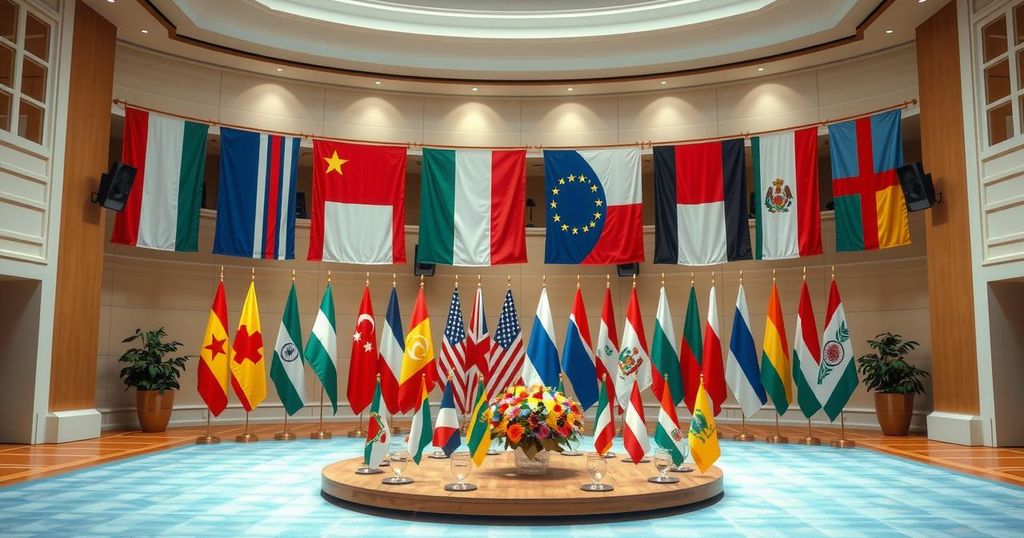Ebrahim Rasool’s Expulsion: Diplomacy and Tensions between the US and South Africa
Ebrahim Rasool, South Africa’s ambassador to the US, was expelled following remarks criticizing President Trump’s policies. His comments caused diplomatic tensions, leading to a mixed response from South African officials. While Rasool expressed readiness to return to South Africa without regrets, the incident highlights significant challenges in US-South Africa relations.
Ebrahim Rasool, a prominent figure in South Africa’s diplomatic relations with the United States, faced expulsion from the US amid contentious political discussions. Known for his anti-apartheid activism, Rasool’s recent remarks regarding President Trump’s policies sparked significant backlash. Shortly after the expulsion announcement, Rasool conveyed a sense of resignation, stating he was ready to return to South Africa with “no regrets.”
During a webinar addressing US policies and their implications for Africa, Rasool was vocal about what he perceived as a mobilization of supremacism under the Trump administration. His assessment ignited a fervent debate on whether he had overstepped the boundaries expected of a diplomat. The South African government expressed disappointment over the US’s decision to expel him, emphasizing Rasool’s contributions prior to the incident.
South African President Cyril Ramaphosa labeled the expulsion as “regrettable,” contending that Rasool had made substantial progress in his diplomatic role. In contrast, unnamed officials described the situation as an “isolated incident” resulting from Rasool crossing diplomatic lines. The US Secretary of State criticized Rasool for making divisive comments, deeming him “no longer welcome” in America.
Rasool’s background as a victim of apartheid has deeply influenced his political stance. Having faced systemic injustices, he began his activism in the 1970s and eventually became a key figure within the African National Congress. Known for his candid views, those familiar with Rasool anticipated his forthright commentary regarding the Trump administration’s policies.
Supporters like Faiez Jacobs defended Rasool’s remarks as objective and principled, suggesting that underlying factors, including his Muslim identity and stance on Palestine, contributed to the severity of the backlash he faced. International relations experts noted that Rasool had been aware of the precarious political climate surrounding his appointment and faced insurmountable challenges due to the previous administration’s attitudes.
With Rasool’s departure, speculation has arisen regarding his replacement, with experts doubting that any successor could navigate the politically charged environment without aligning closely with the current US administration’s ideologies. His expulsion highlights the tense diplomatic relations between South Africa and the U.S., especially under the leadership of President Trump.
Ebrahim Rasool’s expulsion from the United States serves as a significant episode in South Africa’s diplomatic history, underscoring the intricacies of international relations. His outspoken criticism of the Trump administration drew sharp reactions, revealing the challenges faced by diplomats operating within a polarized political climate. As South Africa navigates the aftermath of Rasool’s departure, the implications for future diplomatic appointments and relations with the U.S. remain pivotal. The incident reflects broader themes of race, identity, and the complexities of global diplomacy in an increasingly divided world.
Original Source: www.bbc.co.uk




Post Comment